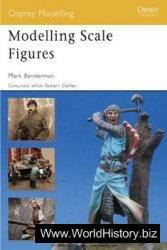Translated by Robert Morstein-Marx and Benjamin Wolkow
Posterity has always been fascinated with the Roman Republic. The main reason is doubtless the enormous expansion by which the small city-state gradually created a great empire which - at least in its longevity - remains unsurpassed in the Western world to this day among large-scale political organizations that attracted quite broad allegiance. But the complex internal organization of the Roman community has also drawn the attention of later generations. Among the senatorial elite of the Roman Empire the Republic was looked upon as the good old days in which freedom still ruled (see, e. g., Tac. Agr. 2.2-3, Hist. 1.1.1, Ann. 1.1.1); even to the Christian world of Late Antiquity and the Middle Ages it appeared as a period of exemplary accom-plishments;1 to the political thinkers of the Renaissance and early modern age it offered inspiration for the development of models of moderate participatory govern-ment;2 in the nineteenth century Theodor Mommsen reconstructed it as a political system based on immutable principles of law;3 in the first half of the twentieth century Matthias Gelzer and Ronald Syme emphasized personal relationships as the central structural characteristic of Republican politics;4 in the second half of the twentieth century the interest in social conflict intensified5 and a ‘‘crisis without alternative’’ was diagnosed for its last phase;6 at the end of the twentieth century the Roman Republic was even portrayed as an ancestor of modern democracy.7 It is in the nature of historiography that such differing approaches and interpretations are all an expression of issues and interests specific to the eras in which they arose, for historical study necessarily draws its questions and concepts from its own time. Nevertheless, this colorful spectrum of reception demonstrates how rich a source of intellectual stimulation the Roman Republic can be, and will certainly remain.
In order to benefit fully from these perspectives and indeed merely to understand the Republic itself, it is absolutely necessary to develop models. In broad terms, a model is the ordering of a series of specific pieces of information by means of a
Hypothesis about their relationship, ignoring details that may be seen as irrelevant from a given perspective.8 Such assumptions about relationships are unavoidable if one wishes to give an account that does not consist simply of isolated details. This means that every account is based on models of this type; yet even the author is not always aware of them, and even less often does an interpreter make them explicit for the reader. In the sketch that follows of the major interpretations in modern historiography of the political system of the Roman Republic (for this will be my focus, for the most part) I shall particularly emphasize the analytical models that underlie these interpretations, for only by means of models of this kind can scholars’ claims to an understanding of the fundamental characteristics of the Roman Republic take shape. At the same time, models may be judged by their capacity to integrate as comprehensively as possible the basic data that can be gleaned from the sources for the Republic. Finally, one should keep in mind that a model is always selective, since it is based on decisions regarding the importance or unimportance of data that will be seen differently from differing perspectives, or indeed often also from differing historical experiences, with the result that new models will be developed. It is in the nature of the matter that no model is permanent.




 World History
World History









